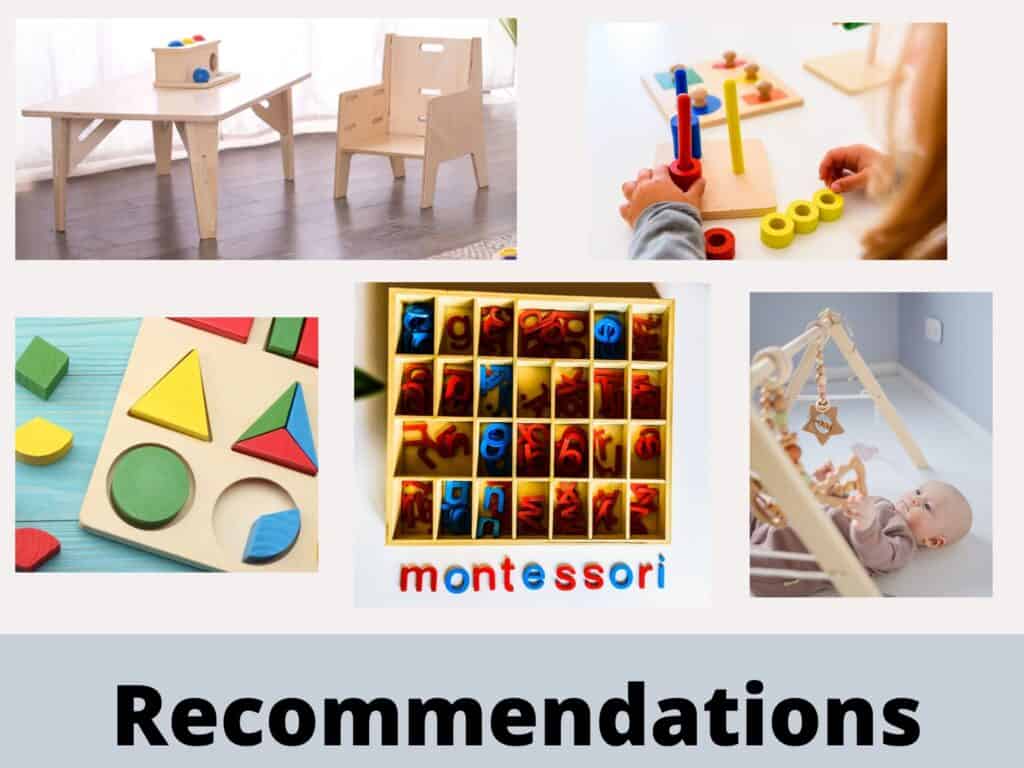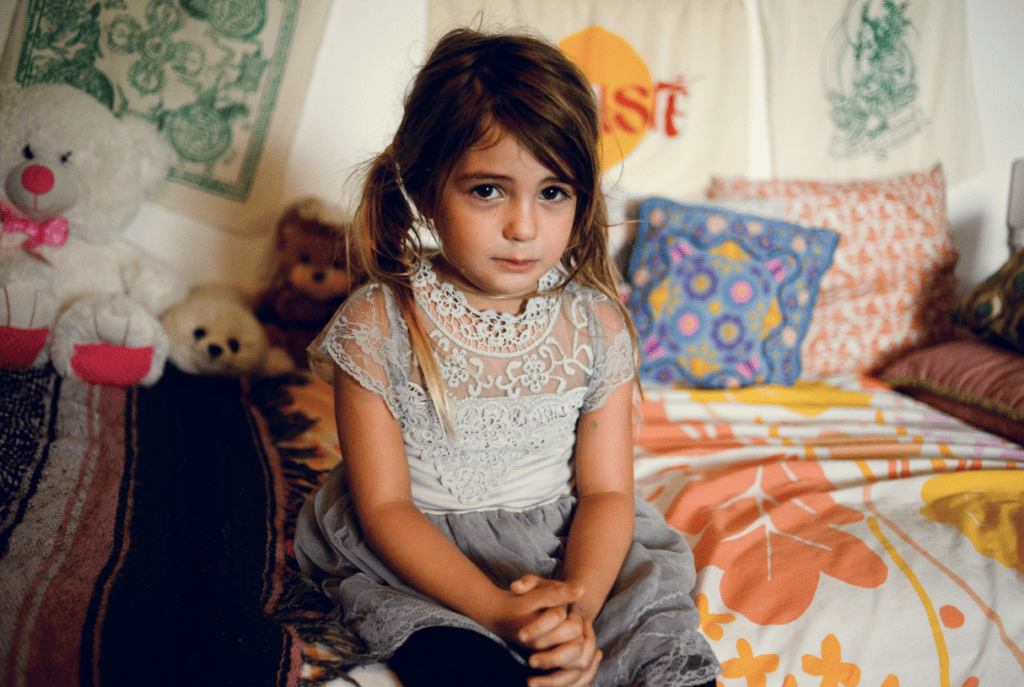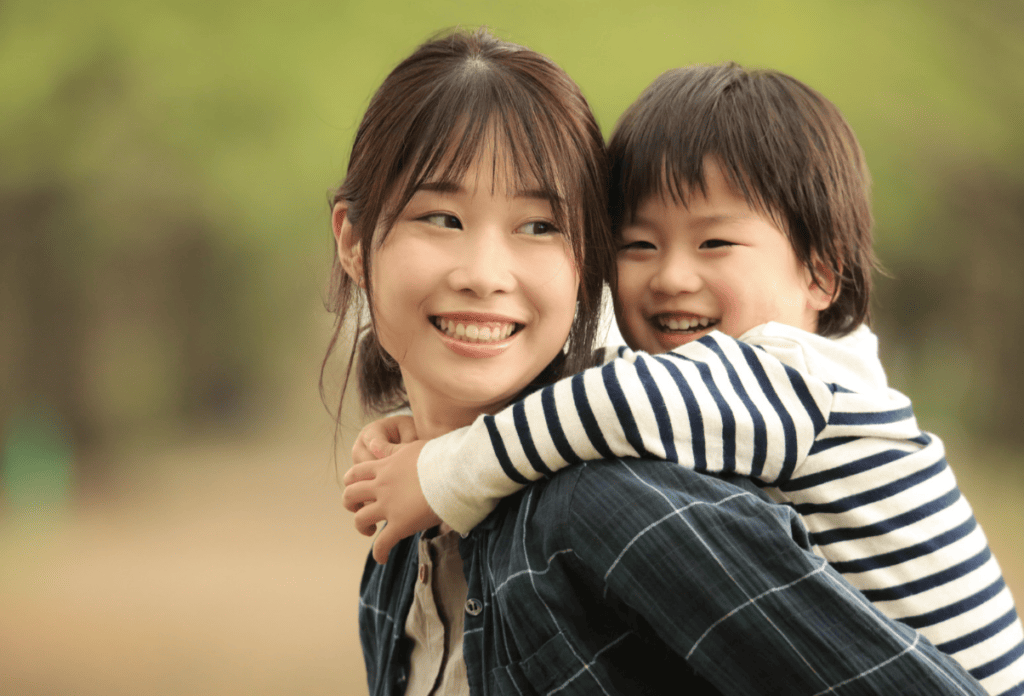Gentle Parenting is a parenting style that avoids traditional methods of ‘discipline’ for a more child-centered approach. This is similar to
Montessori and Gentle Parenting methods overlap in their approach.
The similarities in their approach are in respecting the child as an individual capable of learning through reasoning. Both agree on seeing the child’s needs as worthy of consideration; not an inconvenience. Let us look at the similarities and differences in depth in the areas of respect, discipline, independence, and learning.

Respect for the Child
Montessori – respect for the child is paramount in the
Gentle Parenting – goes against the parenting methods that encourage ignoring the child to train them to become less demanding. Gentle parents do not believe in the idea of ‘manipulative children’. They see events such as crying and unruly behavior as ways children express their feelings. Gentle parents allow their children to show their needs and support them by responding to their needs and giving them attention, not by punishing them.
Discipline
Montessori – Learning by doing is the foundation of discipline in the
“There is no punishment or reward in our schools to interfere with the joy in the work itself. The only reward is in the completion of the work – it is at this time that internal discipline establishes itself, and the foundations of character are laid.” (Maria
Gentle Parenting – disagrees with the idea that discipline and punishment are the same. It advocates teaching that does not involve punishments such as spanking, smacking, time-outs, and grounding, but instead explains to the children what behaviors are appropriate and how to do better.
Gentle parenting uses natural and logical consequences of the child’s actions as teaching tools. This allows the children to learn from their mistakes rather than being shamed and punished. This results in children who will learn and know that they have to do better because they know the consequences of their behavior. Examples of this are:
Natural consequences:
– If the child doesn’t wear footwear outside, their feet will become dirty or wet
– If the child doesn’t wear a jumper/coat when they go out, they will feel cold
– If the child isn’t careful while playing ball inside the house and hits the television, the television will break
Logical consequences:
– If the child tracks mud into the house after playing outside, they will have to help clean it up
– If the child hits another child in the playgroup, they will not be allowed to participate
– If the child stays out past the curfew agreed upon, they cannot go out the next day
Natural consequences often happen immediately and without parent intervention. Logical consequences are an effective method of discipline that teaches children what logically results from their actions. This is an ideal teaching method for children who already possess the capacity for logical thinking. For younger children, these consequences will need to be explained by parents so the children will understand why their actions resulted in the consequences.
Independence
Montessori – encourages independent thinking and doing by asking their opinion on different topics or situations. Through questions like “what do you think?” parents show they respect the child’s thoughts and ideas. They do not belittle children’s ideas as they are learning their way. Parents help them think it through by asking guiding questions.
Children are allowed to choose among available activities to strengthen their confidence in their ability to make decisions. When the child is trying something out and not confident, parents do not step in and do it for them but rather help them figure out how to do it by asking them questions that will lead to them thinking.
Gentle Parenting – is often perceived as a permissive type of parenting because they do not advocate leaving children by themselves to learn to self-soothe. Gentle parenting is somehow perceived to curtail independent learning by accommodating the child’s needs. However, gentle parenting is advocating following the child’s cues at their readiness to take on more independence such as sleeping in their rooms.
Ockwell-Smith states: “(independence) happens when children have had their needs met and as a result feel confident enough to walk out into the big wide world alone, knowing that if they need them – their parents are there for them. Gentle parenting creates, not stifles, independence!”
Learning
Montessori – believes encouraging children to be independent and learn by themselves is the most effective way of teaching them. This is carried out by giving them the freedom to pursue what interests them.
“If teaching is to be effective with young children, it must assist them to advance on the way to independence.” (The Discovery of the Child, p. 58)
Gentle Parenting – believes in raising thinkers, rather than children who will follow rules blindly due to fear of punishment. Critics of gentle parenting suggest that their methods do not prepare children for a life of disappointment, demands, rules, and regulations. However, gentle parenting instead advocates teaching children to question the rules when appropriate and expect respect for themselves the same way they know to respect others.
In some ways, this is similar to the
Conclusion
Montessori and Gentle Parenting are both methods of instructing the child in a manner that demonstrates respect for the child, a method often misunderstood by traditional parenting as permissive and weak methods. For both parenting approaches, discipline is not equivalent to punishment. Instead, discipline is a child’s mastery of one’s self by learning through experience or doing things.
While
Gentle parenting has more parent intervention in their teaching methods, Taking the role of teaching and explaining why actions and behaviors are appropriate or inappropriate. Also, the main focus of Gentle Parenting is more on the aspect of disciplining, while
Both
Montessori is a gentle form of parenting, but it is not the Gentle Parenting approach. While there are points where these two methods intersect and diverge, the common denominator is the focus on the well-being of the child. Preparing the child for the world by building up the child’s confidence in themselves, and teaching them to think critically, rather than being punished or shamed into submission contributes to secure and well-adjusted children, who in turn will become secure and well-adjusted adults.







